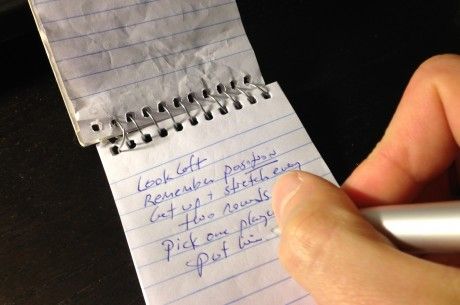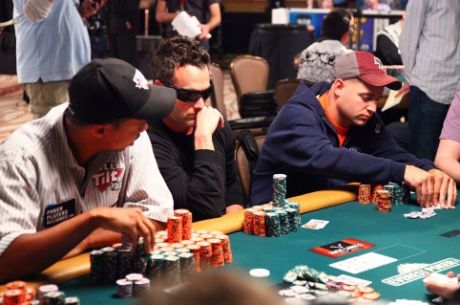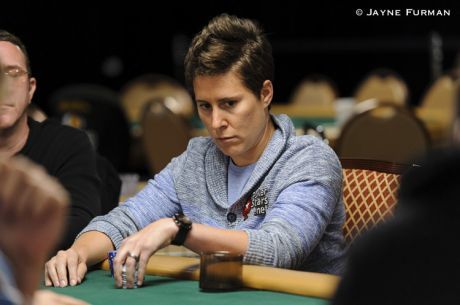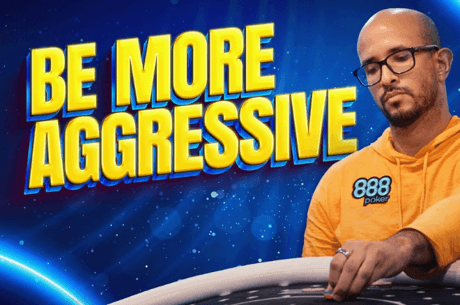Seven Attention Targets for Beginning Poker Players
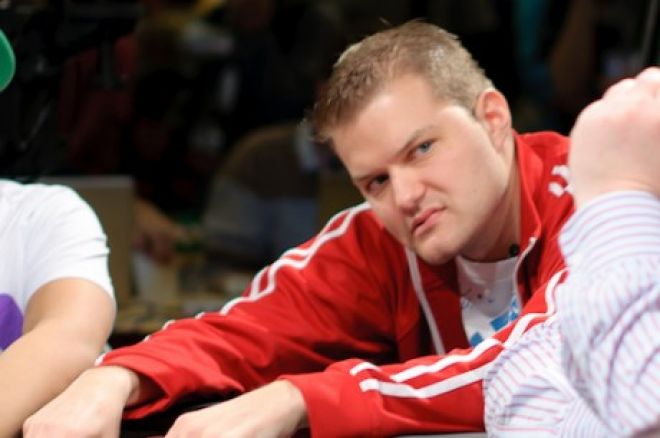
Most beginners at poker know they should pay attention. They understand that poker is a game of information and that they should gather as much of it as possible. To recognize this is an accomplishment; to cultivate the discipline actually to do it is even better.
Simply resolving to pay attention, however, isn��t enough. Indeed, that might not even be possible. You need to be paying attention to something.
If you give yourself the order to pay attention, and don��t give yourself more specific orders, you��ll probably spend most of your time looking at who is betting and calling, and perhaps how they are doing the betting and calling. Again, that��s pretty good, but the information you get that way is a long way from being as useful as it could be. You probably won��t file away important information about the context and relevance of those bets and calls.
You want actionable, relevant information that will help you make the best decisions and win the money. When you search through your memory (or a computer file of notes) for help with a close decision, you want what you have stored to be the sort of stuff that clarifies your decisions �� information that prevents mistakes and turns marginal spots into money makers.
If you��ve been trying to pay attention without a good plan for what to pay attention to, however, you��re likely not to find such stuff. Rather, you��re liable to find a confused heap of indistinct, half-relevant memories.
What Should We Be Paying Attention To?
When Andrew Brokos and I sort through e-mails for the Thinking Poker podcast, we are often impressed by how hard our correspondents are working to gather information. But just as often we worry that the information they have isn��t as relevant as it ought to be. Usually we wind up recommending that they improve their information, not only by learning poker generally but also by paying attention to different and more specific things.
I��m going to give some suggestions for good ��attention targets�� for beginning players, although I think most of them are appropriate for everyone �� indeed, I try to have these in mind every time I sit down to play.
First, though, I want to note that the process of refining and improving what you pay attention to is valuable far beyond the poker table. Serious, honest assessment of your information-gathering and -storage faculties will improve every part of your life. Poker led me to a somewhat disappointing, but ultimately fruitful, assessment of my own ability to pay attention properly and of the relevance of what I chose to pay attention to. Even if I��d never graduated from micro-stakes, this assessment would have made my choice to learn poker worthwhile.
Eventually you will learn a broad set of questions to ask, answer, and remember about the games in which you play. What I am suggesting here are a few with which you might start. Each of these questions points to something specific to pay attention to �� for example, having the questions listed below under #2 in mind ought to focus your attention on raise sizes during hands that are folded to the button.
About preflop position:
- Did the player on the button have a chance to play for a limp or only a small raise? If so, what did he choose? If he showed down his cards, did it look like he was playing something weak just because he had position?
- Has the player on my right [I]ever[/I] folded when the action folded around to her on the button? Has she ever limped in that situation? What cards did she have when she limped? Has she used one raise size or many in that situation?
- Did an early-position raiser act quickly or slowly? Did he seem hesitant about playing his hand, as if he liked the hand but then started to worry about his position? (That happens pretty often.) After he raised, did he track the action closely as it proceeded around the table? (That can indicate many things, including intense interest about whether he��s going to get action with a premium hand.)
Some other important preflop information:
- Who has cold-called a three-bet (that is, a reraise after an initial preflop raise), and with what cards? If the player who did showed down his hand, was he slow playing a big hand? Did he have a good-but-not-great hand that he didn��t want to fold but didn��t feel comfortable raising? Or was he simply making a loose call?
After the flop:
- Which players have raised before the flop and failed to make a continuation bet when heads-up with the initiative?
- Who bet the flop the last time there were at least four players in the pot? Did she have the initiative? How big was the bet relative to the pot? (Many players have many different bet sizes in this situation, so that you can often judge their hand very accurately by their sizing.)
- Who has bet the river in a pot that contained at least 50 big blinds? Who, if anyone, was value-betting with less than two pair?
Answering some or all of these questions as you play will provide you with valuable information about the tendencies and playing styles of your opponents. Note also how by answering each question you are doing more than simply observing passively, but you��re gathering specific ideas about how your opponents play �� ideas you can act on in future hands.
So pay attention at the tables, but try to do more than simply follow the action as it circles around you. Try to focus your attention on specific actions and patterns exhibited by your opponents in telling situations such as those described here.
Be sure to check out Nate and Andrew Brokos on the Thinking Poker podcast, and for more from Nate visit his blog at natemeyvis.com.
Get all the latest PokerNews updates on your social media outlets. Follow us on Twitter and find us on both Facebook and Google+!

